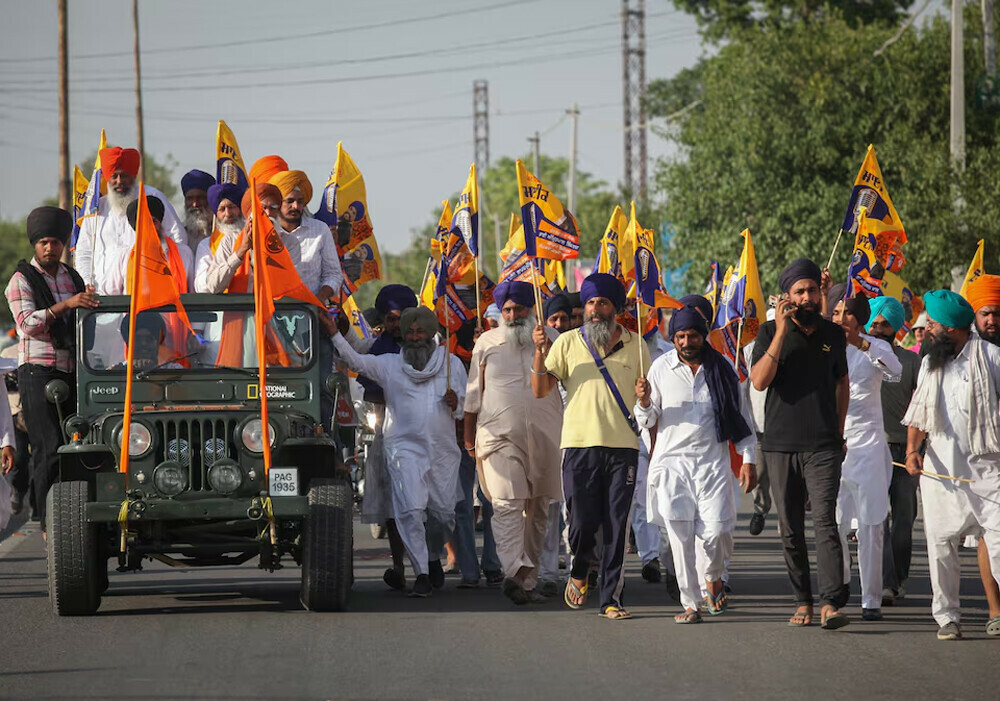In Khadoor Sahib, a Sikh separatist leader currently in jail is running for India’s general election and garnering significant support, according to his campaign managers. This development is causing concern for the government in New Delhi, which has been vigilant in suppressing any resurgence of Sikh militancy.
Amritpal Singh, aged 31, is incarcerated in a high-security prison in Assam, far from his electoral constituency of Khadoor Sahib in Punjab. Despite his imprisonment, Singh’s campaign is gaining traction, evident from posters portraying him adorned with swords and bulletproof vests throughout Punjab’s villages and towns.
Singh’s arrest last year stemmed from a violent incident where he and his supporters, armed with swords and firearms, stormed a police station demanding the release of one of his associates. His potential victory in the parliamentary election could grant him a degree of legitimacy and raise concerns about the resurgence of Sikh militancy, which caused widespread violence in the 1970s and 1980s.
His father, Tarsem Singh, expressed confidence in the electorate’s decision-making process and emphasized the significance of their vote in countering attempts to tarnish their community and Punjab’s reputation.
While Sikhs constitute a majority in Punjab, they represent only 2% of India’s population. The insurgency for an independent Sikh homeland, which emerged in the 1970s, was largely suppressed by the early 1990s. However, recent events, including allegations of Indian involvement in assassination plots against Sikhs in Canada and the United States, have reignited international attention on Sikh separatism.
Singh’s campaign, dubbed as a “tsunami” by his supporters, prioritizes issues such as Punjab’s drug crisis, the release of former Sikh militants, and the preservation of Sikh identity within predominantly Hindu India. However, Singh and his aides refrain from explicitly advocating for a separate Sikh homeland.
Running as an independent candidate, Singh faces competition from candidates representing the opposition Congress party, the Shiromani Akali Dal, the ruling Aam Aadmi Party in Punjab, and Prime Minister Narendra Modi’s Bharatiya Janata Party (BJP). Despite his support, some opponents believe Singh lacks the necessary backing to secure victory, citing the electorate’s reluctance to revisit the turbulent days of militancy.
Although demand for a separate Sikh nation finds more resonance abroad, Singh’s growing popularity risks reviving extremist sentiments at a time when mainstream political parties are entangled in their own rivalries. Analysts warn that Singh’s potential victory, especially in a multi-cornered contest, could embolden fringe radical elements, undermining the influence of moderate voices.
